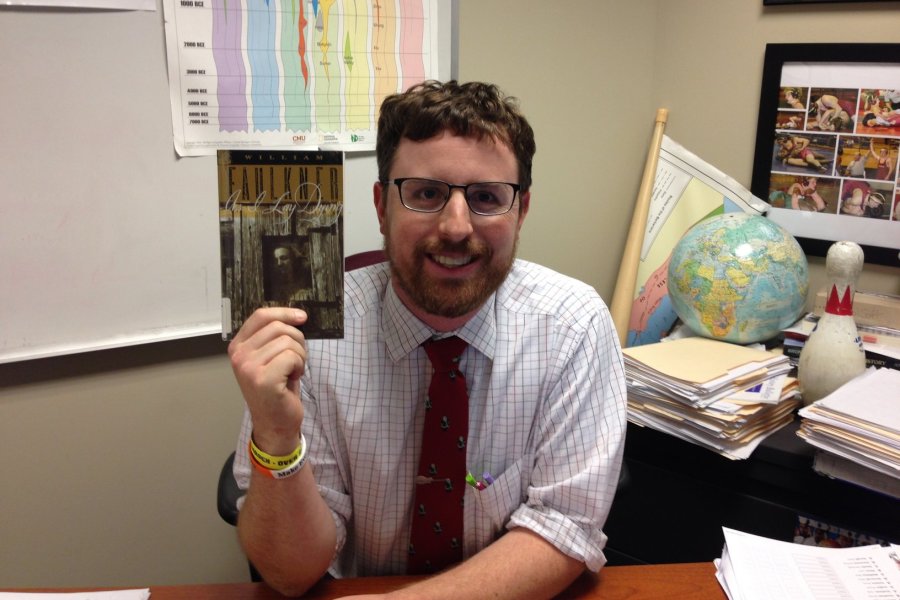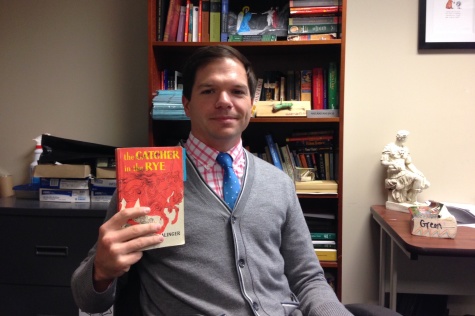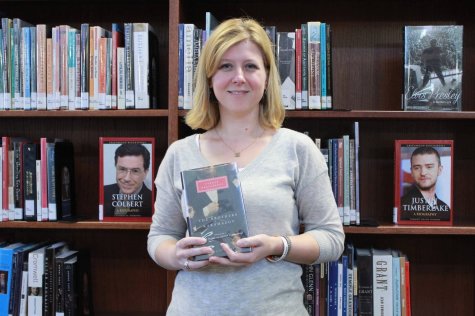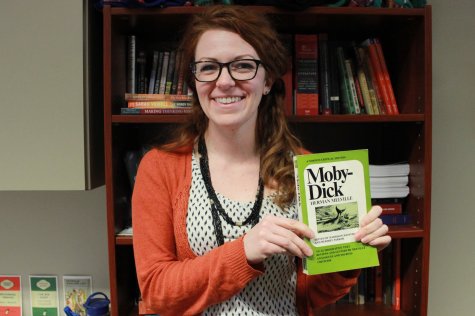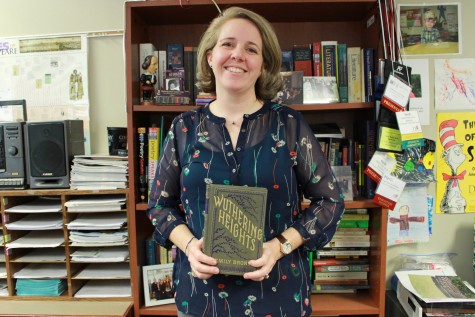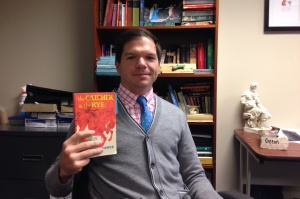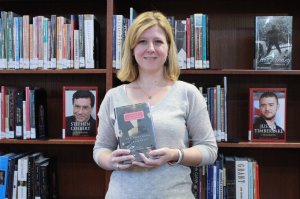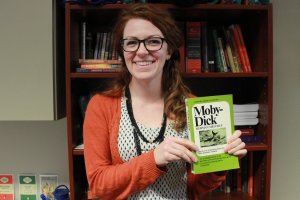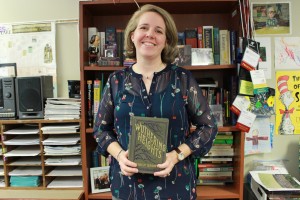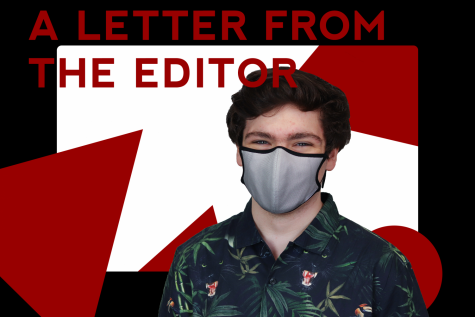Mr. Adcock’s top five favorite books
Photo: Caroline Cannon
Mr. Adcock holds up one of his favorite books. His top five favorite books included “Invisible Man,” “Middlesex,” “The Sun Also Rises,””The Great Gatsby” and “As I Lay Dying.”
The Gryphon Gazette has been catching upper-school English teachers off-guard and asking them their top five favorite books. One of the upper school teacher’s picks will be released every day this week leading up to the break.
When I sat down with Mr. Adcock, the 9th grade English teacher, he seemed ready to take on any question I could throw at him. When I asked him if he could name his top five favorite books, he responded quite curtly “no, I can’t, but I can give you five of my favorite books.” Mr. Adcock was very understanding of the mystery associated with my previous communications with him to plan the interview, admitting that he understood that I was trying to get it “off the top” without letting him put too much thought into it.
- “Invisible Man” by Ralph Ellison
- “I think the voice in that novel is so interesting that it’s an unnamed first person narrator. [I enjoyed] it’s social awareness and the way it handles; based on the technique I think it handled something like race relations, which was something that was difficult to handle, at a time when that was something difficult to do. I read it in 2000, and it was written years before that, but it was still really resonant; it didn’t feel dated.”
- “Middlesex” by Jeffrey Eugenides
- “I had this theory in my head that Eugenides was trying to pay homage to Ellison in his novel, but instead of taking on the issue of race it takes on the issue of gender identity. It’s about a transgender character who is female but was born both male and female, and it’s a very close first person narrator who goes through events in a similar way to Ellison’s book.”
- “The Sun Also Rises” by Ernest Hemingway
- “As a student I really liked The Sun Also Rises. I know it’s not a very popular novel around here, but I liked it. Hemingway is interesting because his bravado is interesting. I think he writes these characters that have this macho man attitude, but that novel is about a guy who is impotent. There’s a great irony to that.”
- “The Great Gatsby” by F. Scott Fitzgerald
- “I know it’s cliché, but I think Gatsby is the greatest American novel, and I think we’ve all said that. I like Gatsby for a similar reason to why I like The Sun Also Rises. I read them both in a class I took that I think was called ‘Paris in the 1920’s’ where we did this whole unit on the literature of the 1920’s. Gatsby is such a quick, fast book that I just feel is intricate and beautiful from the start. It has interesting characters, and it’s perplexing that the narrator is this first person, close narrator even though the story is not really about him. I feel like that’s a really cool aspect that hasn’t really been replicated well.”
- “As I Lay Dying” by William Faulkner
- “I think I appreciate, to some extent, people who are willing to push the bar of what you’re supposed to do with writing. Every chapter is narrated by somebody different, and even though some are repeated there are still some 18 different narrators. I think it’s really, really funny, even though it’s really, really dark. There’s a part where this boy from an unbelievably weird family is drilling with an awl in his grandmother’s casket and he’s like ‘I’ve gotta drill holes in the casket so she can breathe,’ and he ends up drilling all the way through the casket, which means he drills all the way through the body. It’s so grotesque, but it’s also so funny.”


